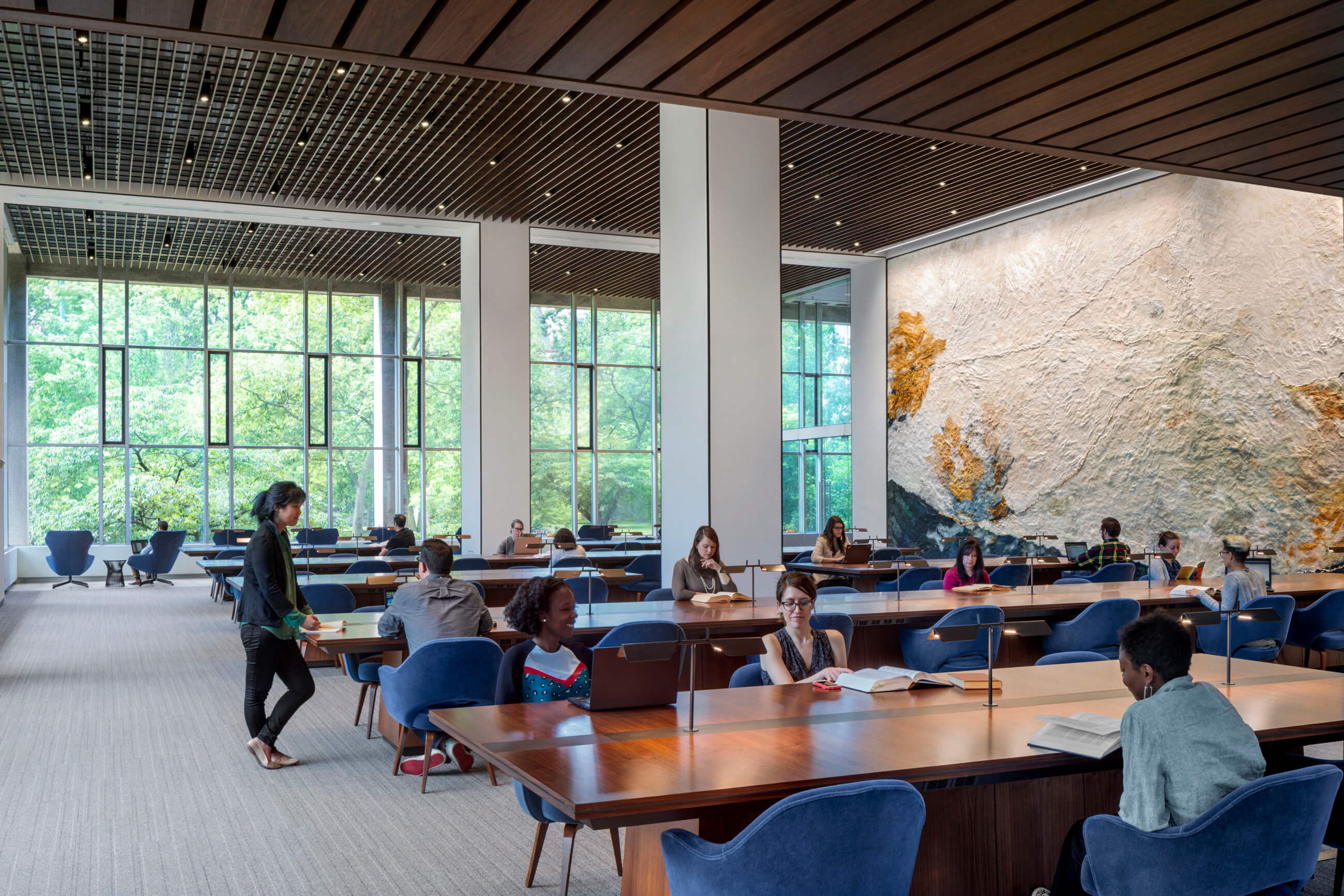Penn Libraries Releases Strategic Priorities for Feedback

The Penn Libraries provides services and collections to further the University of Pennsylvania’s research, teaching, and learning mission and to address the essential challenges and opportunities presented by a rapidly changing world. Our 2020-2025 strategic plan aligns our work with the Penn Compact 2022 pillars of inclusion, innovation, and impact and the University’s goal of advancing knowledge for good.
The strategic priorities listed below provide the compass for navigating our future. As we work toward finalizing the strategic plan, members of the Penn community are welcome to send feedback to librarystratcomm@pobox.upenn.edu.

ADVANCE
Advance information equity by opening scholarship and resources to expansive audiences
Penn shines today as one of the top higher education institutions in the United States, with a clear focus on innovative research that yields actionable knowledge. The Penn Libraries plays an essential role not only in producing research but also in making it accessible to the Penn community and beyond. As the information ecosystem becomes more complex and materials become available in a multitude of formats, we aim to increase and streamline access to many of the resources our users need to create, disseminate, and preserve knowledge. We will build and support new and innovative models for digital projects, collaborative scholarship, interdisciplinary research, and teaching and learning spaces. We will also invest in and expand on our open-data foundation initiatives to expose Penn-created content to a broader audience.
Advance strategies:
- Develop new partnerships, improve workflows, and expand interfaces to open Penn scholarship to local, national, and international constituencies.
- Partner in the creation of knowledge in the classroom using digital pedagogy, archival collections, and enhanced informational resources.
- Construct new learning, study, and event spaces to physically embody the Penn Libraries' work in engagement, preservation, and outreach.

ENGAGE
Expand global impact through intentional and effective engagements with institutions, individuals, and communities
The Penn Compact 2022 motivates community members to innovate, be radically inclusive, and positively impact their local, national, and global communities. The Penn Libraries opens our doors to all, from students and faculty across campus, to partner organizations across the Philadelphia region, and researchers around the world. As trusted information providers in a rapidly changing world, we must intentionally shape and strengthen engagement in order to communicate and deliver our services more effectively and achieve greater impact. To that end, we will increase support for learning through active collaboration with teachers and knowledge creators and inspire critical inquiry and creative expression through our exhibitions, events, and programming.
Engage strategies:
- Embed librarians at critical points in the research and teaching life cycle at Penn to offer proactive and integrated provision of collections, expertise, and services.
- Enhance and expand our digital scholarship support and programming to foster learning and project creation across the Penn community.
- Convey our impact and promote our services in ways that inspire stakeholders to engage with us and invest in our future.

PRESERVE
Ensure long-term access to and preservation of the scholarly and cultural record in all forms
The Penn Libraries’ distinctive collections range from printed books to maps and ancient manuscripts; from sound recordings and digital images to e-journals and data sets. It’s crucial that we continue to build collections that not only fuel today’s research and teaching but also actively contribute to the global scholarship of tomorrow. We will lead and contribute to collaborative national and international preservation efforts to ensure the survival and stewardship of the scholarly record and cultural resources for generations to come. And we will build dynamic and inclusive repositories that expand diversity, accessibility and preservation in all formats.
Preserve strategies:
- Protect the integrity of the world's cultural heritage by building and safeguarding collections, with a focus on education, access, and resource-sharing.
- Pursue effective models for the preservation and stewardship of digital and material collections through expanded and updated digitization, print retention, and web archiving.
- Build collections for current research and pedagogical needs while actively contributing to the global scholarship of tomorrow.

ENRICH
Build the organization's capacity through ongoing assessment and development, informed by a commitment to equity, diversity, and inclusion.
The world of information changes quickly. In order to serve the Penn community and other knowledge seekers most effectively, we will prepare for an evolving future through continuous learning and staff empowerment. We will foster a culture of learning, assessment, and best practices that aligns strategy with the mission of Penn. We will equalize opportunity, develop leaders, and enrich the experience of all members of the Penn Libraries’ community. We will improve communication and collaboration in order to positively impact our work together and successfully support the changing needs of an eminent research university.
Enrich strategies:
- Invest in continuous learning and staff development to ensure the libraries’ value to the scholarly enterprise.
- Build technical, structural, and staff capacity to support a rapidly changing teaching, research, and learning landscape.
- Promote the value of diversity and diverse perspectives among staff.
Date
February 14, 2020
